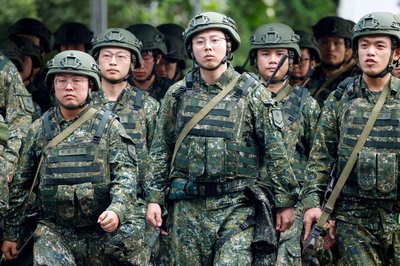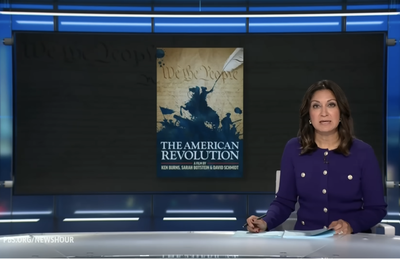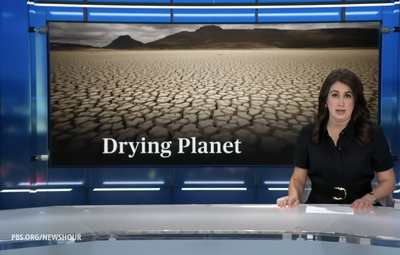Summary
Primary elections took place Tuesday in Wyoming and Alaska as voters decided whether to back GOP incumbents who have criticized former President Donald Trump. Seven of the Republican House members who voted to impeach former President Trump have already retired or lost their primary races. In Wyoming, incumbent Rep. Liz Cheney, the GOP's most forceful critic of Trump and the head of the Jan. 6 committee, lost her election. In Alaska, incumbent Republican U.S. Sen. Lisa Murkowski faced 18 challengers, including Trump-endorsed Kelly Tshibaka, who came in second. In the open primary, the top four vote-getters will compete on a ranked-choice voting ballot in November. Alaska voters also participated in a statewide race in a special U.S. House election to fill the state's only House seat (currently vacant due to the passing of Rep. Don Young) and one in which Trump-backed Sarah Palin seeks a return to office. It could take until Aug. 31 to know the winner of the special election. Palin also ran in a regular primary for the U.S. House seat and will advance to the general election on Nov. 8 along with the other three top vote-getters, including Democrat Mary Peltola and Republican Nick Begich. For Wyoming primary results, click here . For Alaska primary results, click here . For a transcript of this video, click here .Five Facts
- Who were some of the candidates in the 2022 Alaska and Wyoming primaries?
- What was a key factor as to why Rep. Cheney lost her race?
- Where did the primaries take place?
- When did the Alaska and Wyoming primaries take place? When does the 2022 general election take place?
- Why do you think so many Republicans supported candidates who were endorsed by Trump?
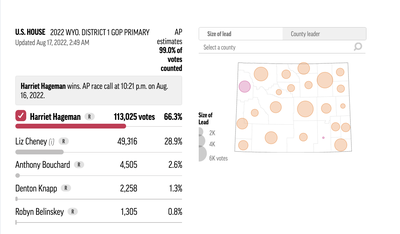
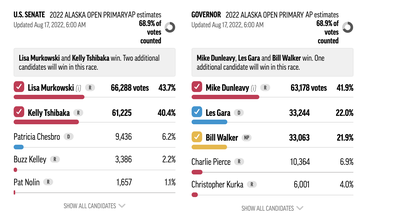
Focus Questions
Why are so many Republican voters convinced the election was stolen from Donald Trump despite zero evidence and numerous investigations led by Democrat and Republican officials? Do you think these voters have other reasons for supporting Trump that may be more personal in nature and speak to bigger societal issues? Media literacy : Journalistic standards and practices includes interviewing multiple perspectives on an issue. Did this piece do that? Explain.For More
What students can do : Know your voting vocab! Get familiar with these key civics terms. Then have a conversation with a peer or family member about whether they think open primaries and ranked-choice voting makes the electoral process more democratic. incumbent — an official currently holding office GOP — Grand Old Party, nickname for the Republican party open primary — voters of any political party affiliation may vote in the primary of any party, but they cannot vote in more than one party's primary ranked-choice voting (a.k.a. preferential voting or ranked voting ) — any voting system in which voters rank their choice of candidates rather than simply choosing one preferred candidate. The top ranked candidates may then compete in a run-off or have second or third choice votes assigned to them until there is a clear majority winner. For more about what Rep. Cheney’s primary loss says about Trump’s influence on the Republican Party, watch this story:Fill out this form to share your thoughts on Classroom’s resources. Sign up for NewsHour Classroom’s ready-to-go Daily News Lessons delivered to your inbox each morning.
